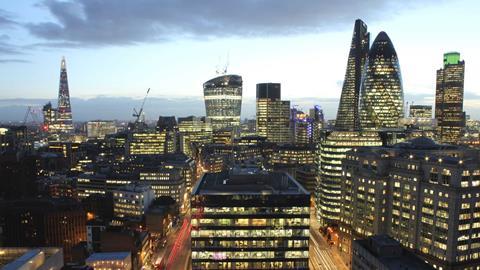London International Disputes Week begins today. The event will underline how the capital retains its peerless reputation for the resolution of complex disputes
Are you interested in art disputes? In the rising value of data in sport? Tracing crypto-assets? Plane, rocket and satellite accidents? Or greener shipping, perhaps? These, along with more predictable topics such as new trends in alternative dispute resolution and the handling of claims arising from the war in Ukraine, are among the offerings in the packed programme of the fourth London International Disputes Week, which begins today.
More than 100 individual sessions are on the menu – not counting working breakfasts, networking drinks events, a gala dinner – and a Law Rocks! performance by the legal profession’s rock star wannabes.
But the event is about more than networking sprinkled with technical education. It was launched in 2019 in response to the perceived threat to London (and other UK legal centres) from a spate of newly founded English language common law courts around the world. Its message is not only that England and Wales is a sound jurisdiction, but, with an eye to politics, that what is good for the commercial legal sector is good for UK plc.
LIDW’s co-chair, Luke Tucker Harrison of City firm Keidan Harrison, told the Gazette: ‘As an epicentre of the legal world, London boasts a rich history of excellence in the field of dispute resolution. At LIDW23, we have the opportunity to showcase the world-class talent and innovative approaches that have made London a leading destination for resolving complex disputes. By highlighting our strengths and the unique advantages of our legal ecosystem, as well as working with and learning from emerging jurisdictions, we can attract more international clients and cement our city’s reputation as a global hub.’
Keynote speaker Lord Neuberger of Abbotsbury is expected to develop this theme when he opens the main conference on Tuesday.
Significantly, this will be preceded by International Arbitration Day, featuring sessions hosted by three international firms. The subject is topical, given the Law Commission’s publication of proposals to reform the 1996 Arbitration Act. Matthew Saunders, vice-chair of the City of London Law Society’s arbitration committee, and head of arbitration at international firm Ashurst, said: ‘LIDW 2023 will again demonstrate how London remains a focal centre for global dispute resolution, with the particular benefits of the flexibility and reliability of English law and English judges, combined with one of the most international arbitration communities to be found anywhere.’ The current discussion about updating the Arbitration Act shows how determined London is to develop its position as the pre-eminent global arbitration seat, ‘to the benefit of our clients and also the UK economy’.
Meanwhile, senior judges from around the world will convene for a meeting of the Standing International Forum of Commercial Courts – a UK-led initiative dating from 2017. Corporate legal responsibility and ESG, together with the ‘complexification’ of international disputes, will be on the agenda for the ‘international judicial conversation’.
'LIDW 2023 will again demonstrate how London remains a focal centre for global dispute resolution, with the particular benefits of the flexibility and reliability of English law and English judges'
Matthew Saunders, City of London Law Society
The overall theme of the event is ‘adapting to a changing world’, which will cover a host of topics from war to economic turmoil, the potential opening of the Indian legal market and the emergence of ‘generative’ artificial intelligence. But it will also hear that, confounding some prognostications of gloom, the traditional commercial dispute resolution scene in London remains in rude health. According to the Commercial Courts Report 2023, the latest annual snapshot of the sector produced by legal communications company Portland, more than 1,100 litigants appeared in the courts last year, 23% up on 2021.
The most surprising finding in the report was that Russia remains the largest non-UK nationality, with 58 litigants, followed by the US, India and Singapore (48, 44 and 35, respectively). Six cases involved Russian litigants on both sides. The report observes that the Russian litigants include several entities on the UK government sanctions list.
Another striking figure is a sharp rise in the number of Singaporean litigants, which are exclusively companies. In his foreword to the report, Lord Neuberger expresses surprise at the 240% increase: ‘It appears to be a particular compliment to London, given the keenness of the Singaporean courts and arbitration institutions to attract southern Asian international dispute resolution to Singapore.’
Meanwhile the commercial court continues to attract US litigants. Lawson Caisley, head of commercial disputes, London, at international firm White & Case, said that appealing factors include the ‘loser pays’ principle, which acts as a disincentive against frivolous litigation, and the predictability of English judges compared with US juries.
While the world is certainly changing and international competition growing, LIDW will celebrate a UK commercial success story – for now.
For more information on LIDW 2023 visit 2023.lidw.co.uk
































2 Readers' comments